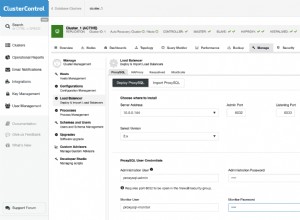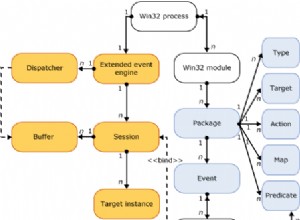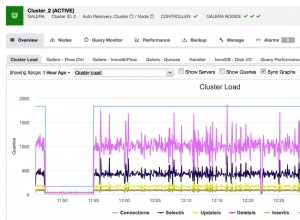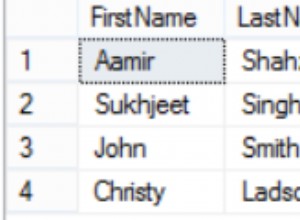Dipende dalle dimensioni del tuo oggetto di grandi dimensioni. Quando i tuoi oggetti di grandi dimensioni hanno meno di 500 MB, non è necessario utilizzare LOB (PostgreSQL usa il termine LO) e puoi utilizzare un text o varchar type - il lavoro è simile a quello con varchar . Dopo questa dimensione dovresti usare LO API.
CREATE OR REPLACE FUNCTION writeappend(oid, text)
RETURNS void AS $$
DECLARE
content bytea;
fd int;
BEGIN
content := convert_to($2, getdatabaseencoding());
fd := lo_open($1, 131072);
PERFORM lo_lseek(fd, 0, 2);
IF length(content) <> lowrite(fd, content) THEN
RAISE EXCEPTION 'not all content was written';
END IF;
PERFORM lo_close(fd);
END;
$$ LANGUAGE plpgsql;
postgres=> select lo_creat(-1);
┌──────────┐
│ lo_creat │
╞══════════╡
│ 20653 │
└──────────┘
(1 row)
postgres=> select writeappend(20653, e'Hello\r\n');
┌─────────────┐
│ writeappend │
╞═════════════╡
│ │
└─────────────┘
(1 row)
postgres=> select writeappend(20653, e'Hello\r\n');
...
postgres=> select convert_from(lo_get(20653),getdatabaseencoding());
┌──────────────┐
│ convert_from │
╞══════════════╡
│ Hello\r ↵│
│ Hello\r ↵│
│ │
└──────────────┘
(1 row)
Quindi puoi usare l'API LO, ma i tipi di base dovrebbero essere preferiti. I limiti per questi tipi di solito sono abbastanza buoni, e lavorare con i tipi di base è molto più comodo, con alcune possibilità come il testo completo.




